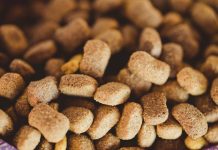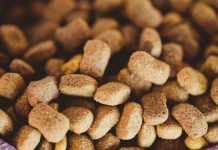When you welcome a new puppy into your home, their boundless energy and playful spirit quickly become a cherished part of your daily life. As a responsible pet owner, you naturally want to ensure your furry friend grows up healthy and strong. One of the foundational elements of their well-being is a diet that supports healthy digestion. In this article, we will explore how choosing the right puppy food can play a crucial role in nurturing your pup’s digestive system. With the right nutrition, you can help your puppy absorb essential nutrients, maintain a balanced gut flora, and enjoy a happy, active life. Join us as we delve into the key components of puppy food that promote optimal digestion and learn how to make informed choices that cater to your pet’s unique needs.
Choosing the Right Ingredients for Optimal Puppy Digestion
Understanding the nutritional needs of your furry friend is essential for their health and happiness. When selecting ingredients for your puppy’s diet, it’s crucial to focus on those that promote gentle digestion. Here are some key components to consider:
- High-quality proteins: Opt for sources like chicken, lamb, or fish that are easily digestible and provide the essential amino acids puppies need for growth.
- Complex carbohydrates: Ingredients such as sweet potatoes and brown rice are excellent for energy and are less likely to cause digestive upset compared to simple carbs.
- Healthy fats: Essential fatty acids from sources like fish oil support brain development and a shiny coat, while also aiding digestion.
- Fiber-rich vegetables: Pumpkin, carrots, and peas not only add essential vitamins and minerals but also help maintain a healthy digestive tract.
Incorporating these elements ensures your puppy gets a balanced diet that supports their overall well-being and keeps their tummy happy. Remember, the right food can set the foundation for a lifetime of health and vitality.

Understanding the Role of Fiber in Puppy Nutrition
Fiber is an often overlooked yet essential component of a puppy’s diet, playing a pivotal role in their overall digestive health. As puppies transition from mother’s milk to solid food, their digestive systems are still developing and require a balanced diet to function optimally. Incorporating the right amount of fiber can help regulate bowel movements, promote the growth of beneficial gut bacteria, and prevent issues such as constipation or diarrhea. It’s important to choose puppy food that includes a balanced mix of both soluble and insoluble fiber to support their delicate systems.
When selecting the best nutrition for your puppy, look for ingredients like:
- Whole grains – These provide a rich source of fiber and energy.
- Vegetables – Options like sweet potatoes and carrots add both fiber and essential vitamins.
- Fruits – Blueberries and apples can offer fiber along with antioxidants.
By ensuring your puppy’s food contains these fiber-rich ingredients, you can help support their digestive health and set the stage for a lifetime of wellness.

Probiotics and Prebiotics: Essential for Your Puppys Gut Health
Ensuring your puppy’s gut health is vital for their overall well-being, and incorporating probiotics and prebiotics into their diet can make a significant difference. Probiotics are beneficial bacteria that help maintain a healthy balance in the gut flora, supporting digestion and boosting the immune system. Prebiotics, on the other hand, are non-digestible fibers that serve as food for these good bacteria, promoting their growth and activity.
- Probiotics: Found in some puppy foods, they help reduce digestive issues like diarrhea and constipation.
- Prebiotics: Often derived from natural sources like chicory root, they enhance nutrient absorption and improve stool quality.
By choosing a puppy food that includes these essential components, you’re not only supporting your furry friend’s digestive health but also setting the foundation for a robust immune system and a happy, active life.

Tailoring Feeding Schedules to Support Digestive Health
Creating a feeding schedule that aligns with your puppy’s digestive rhythm can make a significant difference in their overall health. Puppies have small stomachs and require frequent, small meals to help their digestive systems develop properly. A well-structured feeding schedule ensures that your puppy receives nutrients in a balanced manner, preventing both overfeeding and underfeeding. Start by feeding your puppy three to four times a day, gradually reducing the frequency as they grow older. This approach not only supports digestion but also helps in establishing a routine that your puppy can rely on.
- Morning Meal: Kickstart your puppy’s day with a nutritious breakfast to fuel their energy levels.
- Midday Meal: Offer a balanced lunch to sustain their growth and maintain digestive health.
- Evening Meal: Provide a wholesome dinner to ensure they go to bed with a satisfied tummy.
Remember, consistency is key. Using the same brand and type of puppy food can reduce the risk of digestive upset. If a change in diet is necessary, transition gradually by mixing new food with the current one over a week. This helps your puppy’s digestive system adjust smoothly, minimizing stress and potential digestive issues. By tailoring your puppy’s feeding schedule, you can help foster a lifetime of healthy digestion.
















